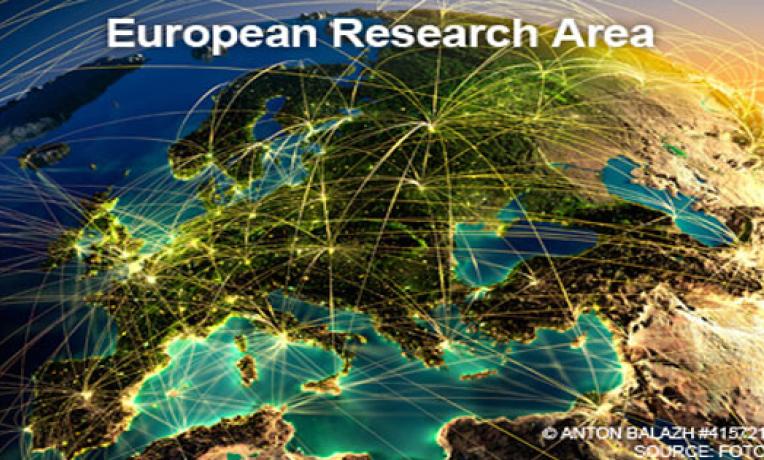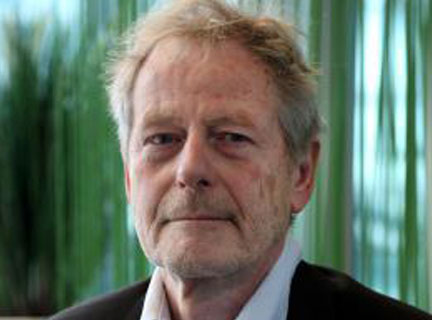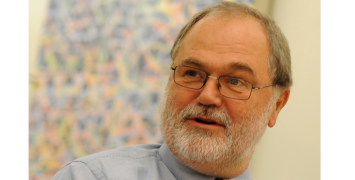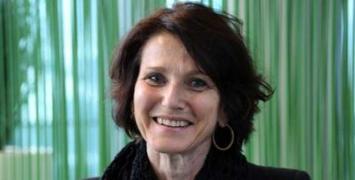Can European research form a community on its own terms ?

Let's take a moment to view the ERC as a European project, as an attempt to create a truly transnational, European entity, and thereby to contribute to the creation of a European identity.
Of course, contemporary science is an international endeavour. And that is true not just of research today. The early modern age saw the creation of the ‘community of letters’, in which intellectuals from across Europe discussed philosophy, religion, politics and the new natural sciences. And in the days of the first universities, during the Middle Ages, students and professors were true vagrants, roaming the European continent, searching and spreading knowledge.
From that perspective modern times have been a regress in certain ways. With the advent of the nation state, and later with the onset of the industrial revolution, science and learning became also informed by national interests, and sometimes by nationalistic motives. The nineteenth and early twentieth century saw fierce competition between various European nations for economic and political-military hegemony. It also witnessed an increased emphasis on national histories, languages, and cultural production as part of the very definition and maintenance of the nation state and its ethnic, religious and politic ideologies and identities.
 Professor Martin Stokhof
Professor Martin Stokhof
Science has been both an accomplice and a counter-acting force in that development. It has sustained the divisions in Europe, but it also has brought people together across these very same divisions. After the Second World War a growing sense that there is more that binds us than that separates us has been a driving force behind many political and economic developments. In certain scientific domains, such as high energy physics and astronomy, this was reflected at an early stage in the creation of large infrastructures that are supported by many nations and that serve an international community.
CERN is perhaps the most well-known, but certainly not the only example. With the creation of the first EU-funded framework programmes other domains became involved. Larger, transnational forms of co-operation in the social sciences and humanities were created, such as the Norface- and Hera-networks, and research infrastructures in these domains that transcend national boundaries were set-up. Initially, the emphasis was on the need for cross-national collaboration and on economic impact. But increasingly the success of these forms of collaboration pointed towards the possibility of something decidedly different: the idea of a European research community, a ‘European Research Area’.
European research can be a community on its own terms, with its own identity and institutions
As an element of the complex process of creating a European Research Area, the ERC can be viewed as part of an attempt to show that the European Union can be, and should be, more than an economically motivated, collaborative framework, that European research can be a community on its own terms, with its own identity and institutions that are not derivates of and dependent on national identities and institutions.
Of course, it is not possible to create a community by sheer will, or just by handing out money. It requires a change in mind-set, of researchers, of administrators, of politicians, and of the public at large. That is extremely hard work, and both the past and the present bear witness to the many challenges that such an endeavour has to face.
One would hope that the success of the ERC contributes to the realisation of this endeavour. For the ERC has a distinct contribution to make here. It strengthens and broadens a European community of researchers by increasing mobility, by allowing talented researchers to build research groups that are internationally composed, and by defining the very idea of excellence in a European context.
The ERC is truly a European project. It builds a community, a consciousness, a web of relations between institutions and individuals
In that sense the ERC is truly a European project. It builds a community, a consciousness, a web of relations between institutions and individuals that is not national, - obviously -, but also more than ‘merely’ supra-national. It is European from the ground up. And that strengthens the concept of ‘being European’, as it applies to individuals, communities and institutions, as a basic identity.
Funding schemes come and go, as do funding organisations. But if the ERC turns out to have contributed to a sense of European identity, then it has made a contribution that goes beyond fostering frontier science, one that is of lasting importance. Whether it will be allowed to do so depends first and foremost on how well it acquits itself of the task that has been set for it. Everyone involved in the ERC is well aware of that. But that is only part of the story, it also depends on the political will of the citizens of Europe to look at themselves in a way that transcends national, ethnic, religious boundaries and that recognises that behind what divides them lies the promise of a united Europe.
It is my hope that the ERC may continue to contribute to fostering that insight and to strengthening that will.
Adapted from a speech given at the conference “The Printing Revolution” on 19-20/09/2018, part of the ERC funded project 15c Booktrade led by Christina Dondi.





